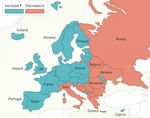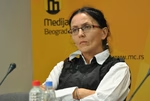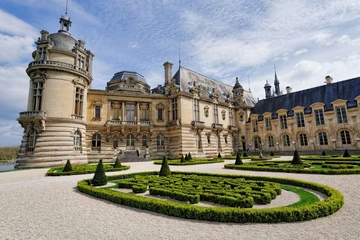'Nobel committee sees Handke's literary work different from Bosnian war victims'

It is obvious that we understand Peter Handke's literary work in different ways, chairman of the Academy's Nobel Prize committee Andres Olsson writes in a letter to the Association of Survivors and Witnesses of War Crimes in Bosnia and Herzegovina, who protested against Handke's 2019 Nobel Prize award.
Oglas
In a letter addressed to the head of the Asociation of Survivors and Witnesses of War Crimes in Bosnia, Murat Tahirovic, Olsson said they received the Association's letter with “concern and deep sorrow.”
“It is obvious that we have a different understanding of Peter Handke's literary work. However, I believe we share common ground on the fact that we all rely on the legal and careful conclusions of the Hague Tribunal. For us, the Tribunal's decisions are the foundation for understanding the essential part of Europe's tragic history from which, we hope, we can all learn,” the Nobel Prize committee's chairman wrote in his letter.
In October, the Bosnian Association ent a letter to the Nobel Committee, expressing their protest and deepest disappointment with their decision to award the Nobel Prize for Literature for 2019 to the Austrian writer Peter Handke. In their letter, they wrote that the Nobel Committee offended the Srebrenica genocide survivors and survivors of concentration camps, and victims of rape and torture.
Oglas
The Association of Survivors and Witnesses of War Crimes in Bosnia and seven other associations of war victims recalled the events which took place during the Bosnian war of 1992-1995 that were committed by those whom the Nobel Prize laureate supported.
The Academy came under heavy criticism from politicians, NGOs and intellectuals for bestowing a genocide denier with the Nobel Prize. Handke is known in the Balkans for his support for late Serbian leader Slobodan Milosevic, who died in his cell awaiting his verdict at the UN war crimes tribunal in The Hague for his role in the wars in former Yugoslavia.
Handke spoke at his funeral. He also openly supported Bosnian Serb leaders Radovan Karadzic and Ratko Mladic, both convicted of genocide committed in the eastern Bosnian town of Srebrenica in 1995, when more than 8,000 Muslim men and boys were executed under the watch of the United Nations.
Kakvo je tvoje mišljenje o ovome?
Učestvuj u diskusiji ili pročitaj komentare
Oglas
Kakvo je tvoje mišljenje o ovome?
Učestvuj u diskusiji ili pročitaj komentare
Oglas





 Srbija
Srbija
 Hrvatska
Hrvatska
 Slovenija
Slovenija


























































